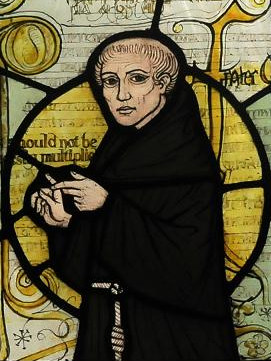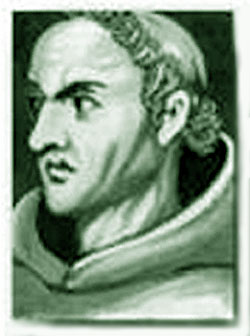
The methodological principles that underlie Ockham's philosophy, and which are frequently appealed to by him, are as follows. He died in April 1347, when he was about 60. Louis offered Ockham's group protection, and in 1330, Ockham travelled to the imperial court in Munich, where he occupied the rest of his life exclusively with political and ecclesiological treatises. Ockham is supposed to have said to Louis "Defend me with the sword and I will defend you with the pen" ( me defendas gladio ego te defendam calamo). In Pisa the group of dissidents met Louis of Bavaria, the Holy Roman Emperor, who was engaged in a political dispute with the Papacy.

On June 6, 1328, Ockham was officially excommunicated - not for his writings, but for leaving Avignon without permission. The dispute forced him to leave Avignon for Pisa with Michael and other dissidents on May 26, 1328. Ockham met Cesena and became embroiled in the dispute about Francisan poverty, about whether Christ and his disciples had ever owned anything.Īt the request of Michael, Ockham began to study John XXII’s views on Franciscan poverty, concluding that the pope’s views were heretical. In 1327, the Franciscan minister general Michael of Cesena arrived in Avignon. Pourçain, concluded that 51 propositions in Ockham's writing deserved censure, but they were never formally condemned by the Pope. In 1326 the commission, headed by Durand of St. Arriving in Avignon between January and May 1324, he stayed there while his theological and philosophical works were being examined. This Franciscan opposition probably also led to Ockham’s appearance before the provincial chapter of 1323.īy 1324, John Lutterell, a former chancellor of Oxford university, was questioning Ockham’s orthodoxy, and Ockham was summoned to the papal court at Avignon. Ockham encountered opposition to the work he completed in England, even from fellow friars such as Walter Chatton, whose students accused Ockham of heresy. In this period, Ockham also began his Quodlibeta, completed in Avignon c.1325, and revised his Sentences commentary (resulting in the Ordinatio, the version of the commentary that Ockham defended before the examination committee in Avignon). From this 'London period' date most of Ockham’s important philosophical works, his eucharistic treatises ( De quantitate and De Corpore Christi), and his great work, the Summa Logicae.

Īfter this, probably in 1321, he is thought to have taught philosophy at the Franciscan Studium Generale at Greyfriars, London, and to have worked alongside Walter Chatton and Adam de Wodeham (his foremost disciple). On 18 June 1318 he was ordained priest in Oxford and received a licence to hear confessions.

He began studying theology at Oxford, probably in 1317, when he began the requisite two-year period of lecturing on Peter Lombard's Sentences. He continued to study philosophy and theology until he was admitted to the lectorate program at the Oxford studium in 1310. After his novitiate, he embarked on more advanced studies of logic and philosophy in London, and he was ordained subdeacon at the age of eighteen in 1306. He probably entered the Franciscans at London as puer oblatus, when he was seven or eight, where he would have received instruction in grammar and elementary logic, as well as an introduction to Franciscan life. William was born in 1287 in the village of Ockham (probably the village of that name near London in Surrey).


 0 kommentar(er)
0 kommentar(er)
